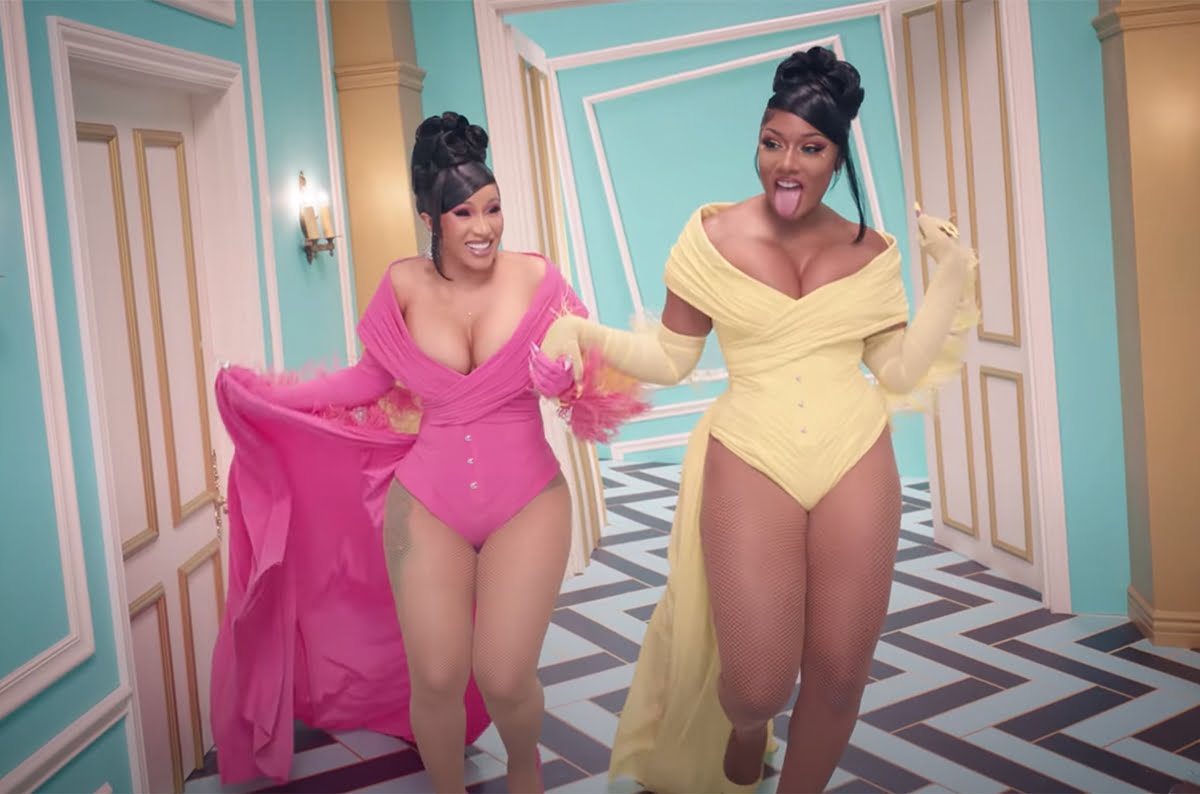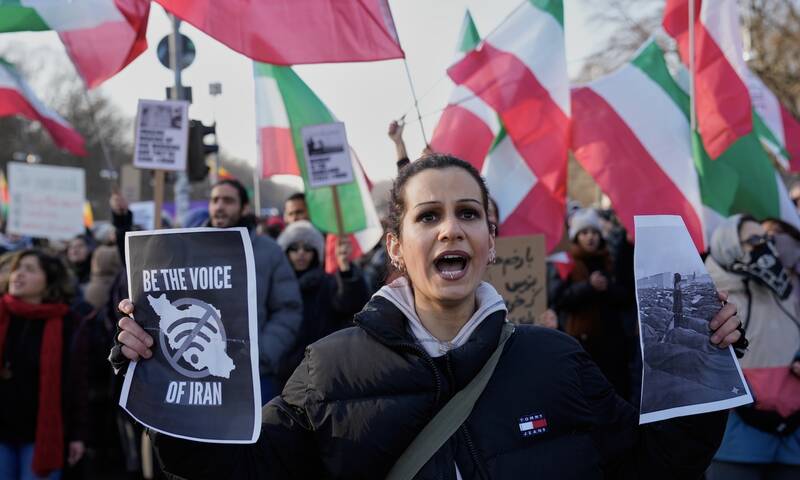In 2020, Chris Evans accidentally posted his nude on Instagram, and the response was very heart-warming. Several Internet users were quick to be mindful of the fact that Evans suffers from anxiety and filled Twitter with wholesome praise and support of the actor, virtually turning the tide of the trending Twitter conversation. Many female actors have suffered the same fate, however the difference being that they would be slut-shamed and severely criticised for their choices. Even an attempt at being ‘sex-positive’ is transformed into being a ‘sex-symbol’, a prominent example being that of Britney Spears.
The discourse surrounding Cardi B’s WAP ft. Megan Thee Stallion has been riddled with staunch criticism over morality even though Cardi won over the haters after her new song ‘Up’.
The discourse surrounding Cardi B’s WAP ft. Megan Thee Stallion has been riddled with staunch criticism over morality even though Cardi won over the haters after her new song ‘Up’. The song became No. 1 in the United States post the Grammys performance during which she also performed WAP She also broke numerous records, most notably becoming the first female rapper with dual solo number 1 hits. Her song was also among a lot of top ten end year lists, started a massive Tik-Tok challenge, and its lyrics were the most searched lyrics of 2020.
Also read: ‘Framing Britney Spears’: The Dichotomy Of Hyper-Sexualization & Infantilisation Of The Pop Star
Released in August 2020, Cardi B’s massively successful track called WAP (abbreviation for Wet Ass Pussy) with Megan Thee Stallion did receive critical acclaim for its “sex positive image” citing it as a “landmark moment in the representation of female sexuality”. It was also ground breaking that two women of colour have the number one song in the world. On the other hand, conservatives were questioning everything – from its feminism to Cardi being a mother culminating in a demand for the song to be banned. The majority of the backlash also dissected the private lives of Cardi and Megan.
The conservatives deemed it inappropriate for Cardi to release such music as a mother but what everyone forgot was that Cardi B is a rapper, and not just a mother through her music. She has always been an outspoken rapper talking about sex and sexuality. And the provocative images or the sexually explicit lyrics are not the problem, it’s the gendered dynamic of the Internet as a space and the Rap-music industry being dominated by male gaze and fenced by patriarchy. Male rappers constantly objectify and degrade women in their work and they never faced criticism to the extent that Cardi B and Megan have for celebrating the female sexuality. The space belongs to them and they sing about whatever they feel entitled to, unlike Cardi and Megan who keep transgressing the norms of this space through their music.
Male rappers constantly objectify and degrade womenin their work and they never faced criticism to the extent that Cardi B and Megan have for celebrating the female sexuality. The space belongs to them and they sing about whatever they feel entitled to, unlike Cardi and Megan who keep transgressing the norms of this space through their music.
YouTuber Anthony Fantano was amongst the few who gave a constructive review of the song proclaiming it rightfully as a ‘water-shed’ moment for female sexuality in rap music, the second-best single release of 2020, and also a significant change maker in the context of ‘gender dynamics’ within the rap industry. Instead, the right criticism could have been around the portrayal of animals in the video, or about the opulence that caters to the neo-liberal gaze of consumption. But women owing their ‘own’ sexuality was a bigger issuer in the public eye. The song also steers away from representing a woman catering to a man’s sexual needs which has been a staple of rap music for a long time. Interestingly, for conservatives, the song came off as a threat to the institution of the family.
It might be because there’s no policing or curtailment of women’s behaviour in the video, something which is the hallmark of patriarchy. Regarding the question of What will the children think? — Children should not have access to sexually mature content until they are of the right age. And such content won’t turn them from ‘virgins’ to ‘whores’, both sexually degrading categories conceptualised by the likes of the conservatives who criticised the song. It might actually make them more aware and informed about sex, sexuality and its expression. It is also important to differentiate ‘sex positivity’ from ‘hyper sexualisation’, which most of the critics couldn’t do.
I see WAP as an attempt to reclaim ‘female sexuality’ through rap which since its inception has been sexually explicit only from perspective of men. Cardi B’s WAP presents the internet as a public space where women are having ‘fun’, being comfortable in their bodies and their sexual expression. And when women sing about what they want in sex, the internet suddenly becomes a not-so public space holding up moral ethos. Angela Davis, while theorising ‘the myth of black promiscuous woman’ has pointed out how culturally, black women have been demonised and hypersexualised as being ‘sexually promiscuous’. The song completely breaks away from this myth, and in the act also introduces black queerness as the song is directed towards women.
Also read: What Are The Taboos Concerning Female Sexuality?
As a friend of mine put it, “It’s confident and care-free in its ability to shock, which is good”. It is an act of transgression from the policing of the public space of the internet and no wonder that people like Ben Shapiro were so quick to criticise WAP in fulfilling their agenda to establish right-wing, conservative ethos on the internet. It has not been easy at all for Cardi B and Megan to proclaim this Internet space. Cardi B faced backlash on her being a mother and Megan’s shooting was turned into a meme. However, their act of enjoying their sexuality and engagement with fun of sexual nature is political.
Shilpa Phadke, Sameera Khan, and Shilpa Ranade in their book ‘Why Loiter? Women and Risk on Mumbai Streets’ also emphasise the need to fight for the right to loiter, and not just for the right to privacy. This is a fight to be vulnerable in a public space, without being attacked for it. In the context of perceiving internet as a public space, they further say “we need an online public in which women are not victims, but loiterers, actively engaging in its public sphere without a discourse of predators, pornographers, and slut-shamers waiting there to ruin them.”
This also accounts for why Megan’s powerful essay on Why I speak up for black women? is so crucial. WAP erupted on Tik-Tok where countless women were posting their rendition of the choreography as a political act of loitering on the public space of the internet. The idea that women cannot enjoy such content is simply sexist and misogynist. In rap music, it has been men talking about what women want. And now that women are talking about what they like about sex, maybe the others can sit down and learn a thing or two from it.
Featured image source: Billboard




